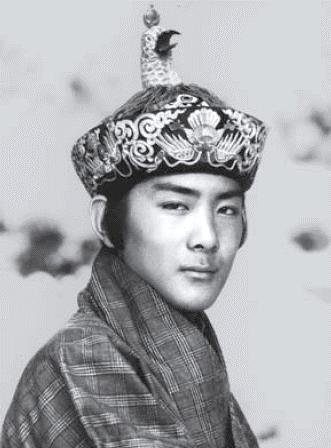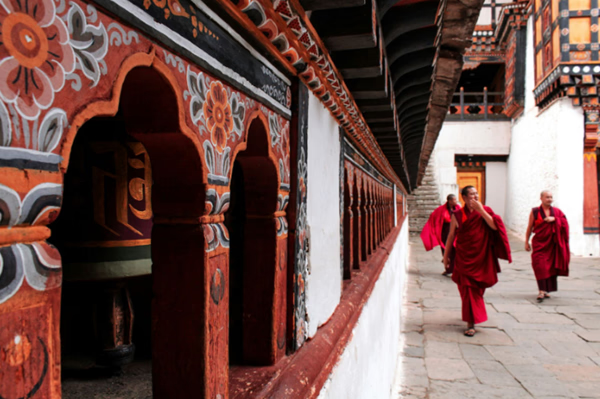
King Jigme Singye Wangchuck, the Fourth King of Bhutan, is celebrated as one of the most influential monarchs in the nation's history. From 1972 to 2006, his leadership marked a transformative period that saw Bhutan embrace modernization while safeguarding its rich cultural heritage.
This blog explores the king's remarkable contributions, philosophies, and enduring legacy, particularly through the lens of Gross National Happiness (GNH) and his role in transitioning Bhutan to a democratic state.
1. Early Life And Ascension To The Throne
Born on November 11, 1955, King Jigme Singye Wangchuck was the second son of King Jigme Dorji Wangchuck and Queen Ashi Phuntsho Choden. He received his education in India and later in the United States, where he was exposed to diverse ideas and cultures.
Upon the untimely death of his father in 1972, he ascended to the throne at the young age of 16. Despite his youth, he was determined to lead Bhutan into a new era.
2. Introduced Gross National Happiness As A Guiding Principle

One of King Jigme Singye Wangchuck's most significant legacies is the introduction of Gross National Happiness (GNH). This innovative framework prioritizes the holistic well-being of citizens over mere economic growth. The king believed that true progress should consider life's mental, spiritual, and cultural dimensions.
GNH is founded on four pillars:
Sustainable Development: Ensuring that growth does not compromise the environment for future generations.
Cultural Preservation: Upholding Bhutanese traditions and values amidst modernization.
Good Governance: Promoting transparency and accountability in governance.
Equitable Socio-Economic Development: Ensuring that the benefits of development reach all citizens.
By institutionalizing GNH, the Fourth King set a precedent for a development model that many countries around the world have since admired and sought to replicate.
3. Built Critical Infrastructure For Modernisation
Like the other kings of Bhutan, King Jigme Singye Wangchuck also initiated numerous development projects aimed at modernizing Bhutan. These included improvements in infrastructure, such as roads, schools, and hospitals. The king understood that modern amenities were crucial for enhancing the quality of life for his people.
The introduction of the Five-Year Plans was a pivotal step in this modernization effort. These plans focused on building essential infrastructure and promoting agriculture, education, and health care.
As a result, Bhutan saw significant improvements in literacy rates and access to medical services, contributing to the overall well-being of its citizens.
4. Advocated For Environmental Conservation
The Fourth King was a strong advocate for environmental conservation. Recognising Bhutan's unique biodiversity, he implemented policies to protect the country's natural resources. His government ensured that at least 60% of Bhutan's land area remained under forest cover, a commitment Bhutan has maintained today.
This dedication to the environment aligns with the principles of GNH, which emphasizes the importance of sustainable development. Bhutan's policies serve as a model for other nations grappling with environmental challenges, showcasing that economic development and ecological conservation can go hand in hand.
5. Transitioned Bhutan To A Constitutional Monarchy
One of King Jigme Singye Wangchuck's most remarkable actions was his 2006 decision to voluntarily abdicate the throne, paving the way for a constitutional monarchy. His decision to step down in favor of his son, King Jigme Khesar Namgyel Wangchuck, marked a significant transition in Bhutan's governance.
The Fourth King believed that a constitutional monarchy would allow for greater people's participation in governance. This transition involved drafting a new constitution, which was enacted in 2008, establishing a democratic framework that empowered citizens to elect their leaders.
The establishment of democracy was a historic milestone for Bhutan. It ensured that the people's voices would shape the nation's future. This shift demonstrated the king's vision for Bhutan and his confidence in the people's ability to govern themselves.
6. Preserved And Promoted Bhutanese Culture

King Jigme Singye Wangchuck valued preserving Bhutan's rich cultural heritage. He understood that culture is an essential part of national identity and unity. Under his reign, traditional arts and crafts were revived and encouraged through various initiatives.
Another significant step during his reign was promoting the national language, Dzongkha. The king advocated for the use of Dzongkha in schools and government institutions, fostering a sense of national pride and unity among the people.
Cultural events, Tshechu festivals, and traditional practices were revitalized, ensuring the younger generation remained connected to their heritage. The Fourth King's commitment to cultural preservation continues to resonate with Bhutanese society today.
7. A Humble And Accessible Leader
Despite his royal status, King Jigme Singye Wangchuck was known for his humility and down-to-earth nature. He often engaged directly with the people, participating in community events and addressing their concerns. This approach fostered a sense of trust and respect between the monarchy and the citizens.
His commitment to the welfare of his people extended to various charitable initiatives, where he actively supported projects aimed at improving education, healthcare, and infrastructure in rural areas. The king's efforts to connect with the people solidified his legacy as a beloved leader.
Conclusion About Bhutan's Fourth King
King Jigme Singye Wangchuck's legacy continues to shape Bhutan's identity and development. His emphasis on Gross National Happiness, commitment to cultural preservation, and dedication to sustainable development have left an indelible mark on the nation.
Partnering with a reputable Bhutan tour operator is essential for those interested in exploring the country's enchanting landscapes and rich culture. Druk Asia stands out as a premier choice, offering tailored experiences that allow visitors to immerse themselves in the beauty and traditions of this remarkable kingdom.
Whether you seek adventure, cultural exploration, or spiritual enrichment, Druk Asia can help you create unforgettable memories in Bhutan. It honors the vision of a leader who believes in the happiness of his people.
Frequently Asked Questions About Bhutan's Fourth King
How Is King Jigme Singye Wangchuck Remembered In Bhutan?
He is fondly remembered as a visionary leader who balanced tradition with modernity, earning the affection and respect of the Bhutanese people. His legacy continues to inspire future generations in Bhutan and beyond.
What Is The Significance Of Gross National Happiness In Bhutan Today?
GNH has become a cornerstone of Bhutanese policy and development, influencing various sectors, including tourism, agriculture, and governance. It reflects Bhutan's unique approach to progress and well-being, setting an example for other nations to consider holistic development.
How Many Wives Did King Jigme Singye Wangchuck Have?
The Fourth King has four queens: Ashi Tshering Pem Wangchuck, Ashi Dorji Wangmo Wangchuck, Ashi Sangay Choden Wangchuck, and Ashi Jizom Choden Wangchuck. His marriages reflect the traditional practice of polyandry in Bhutan, which is culturally significant in the country.
How Many Children Does King Jigme Singye Wangchuck Have?
King Jigme Singye Wangchuck has three children: Prince Jigme Khesar Namgyel Wangchuck, Princess Ashi Dechen Yangzom Wangchuck, and Princess Ashi Euphelma Choden Wangchuck. His son, Jigme Khesar, succeeded him as the Fifth King of Bhutan.
